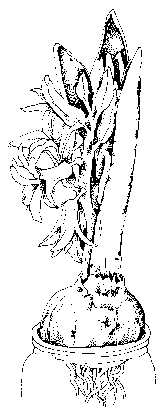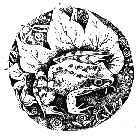Table of Contents
Three Poems
|
Winter
Issue: 1999 - 2000 The true miracle is not walking on water or walking in air, but simply walking on this earth. ~ Thich Nhat Hanh Welcome to the 1st issue of Gatherings! Ecopsychology is a new, inter-dependent way of thinking that links a complex number of subjects, including ecology, environmental science, philosophy, psychology, psychiatry, education, imagination and spirituality. We’ve gathered here on this page from all around the world to share our ideas and dreams and fears about this compelling matrix. In the exchange of energy we hope to create around the ‘fire’ of our electronic connection here, we'll be using many different kinds of language; telling stories and making music out of academic discourse, poetry, the beat of heart-felt rant, the chimes of laughter and the shrill saxaphone blues of lament. We hope that you find this e-zine enjoyable, and a way 'in' to your own exploration of Ecopsychology and what it might mean to you.
Minnesotan writer and activist Betsy Barnum’s work on Holding the Vision models an active engagement with the material we’re working with here, and Richard Coon, from the Sociology Dept of Carroll College in Wisconsin, writes In Praise of an Eco-Spiritual Sangha about the importance of a support group for maintaining this level of engagement. In a whimsical prose piece, Australian post-graduate student Sylvie Shaw describes the Dance of social and spiritual interaction such a sangha gives rise to. As an introduction to the subject of Ecopsychology, practicing Ecopsychologists John Scull and Robert Greenway give two perspectives on this dynamically emerging sphere. ICE founder, Land Trust activist and behavioral psychologist John Scull offers a critical overview of the history of Ecopsychology in Let a Thousand Flowers Bloom, while wilderness therapy pioneer Robert Greenway reveals his experience with a more Personal History of Ecopsychology, and questions the basic tenets of our assumptions in his provocative What is Ecopsychology? John Scull lends his experienced practitioner’s eye to a Review of two recent books on applied Ecopsychology: The Healing Earth: Nature's Medicine for the Troubled Soul and Ecotherapy: Healing Ourselves, Healing the Earth. Using Margaret Wheatley’s dynamic
organizational systems theory as a guide, Betsy
Barnum’s article Activism and 20th-Century Science makes explicit the links between
this new science and an organic activism that can make
use of natural models of organizational behavior in order
to promote effective change. Barnum recently appeared in court to defend her ideals, when she was arrested after all-night vigil protesting the clear-cutting of four ancient sacred oaks for a highway extension in her Minneaoplis community. This is the Statement she wrote to read at her hearing. Some of her personal appreciation of the relationship between humans and trees is expressed in a short piece entitled Walking Trees, which is illustrated by Michel Durant. Sylvie Shaw combines her environmental and academic interests in a paper on Nature & Childhood Trauma, first presented in a national conference at Victoria’s Monash University. In it, she makes some intriguing links between witnessing environmental destruction and/or personal trauma in childhood and later expressions of adult activism. The complex interchange we call "language" is rooted in the non-verbal exchange already going on between our flesh and the flesh of the world. --David Abram, The Spell of the Sensuous
John Croft, co-founder of the Australian Gaia Institute, shows what we can learn from the spiritual and environmental integration of the indigenous peoples of Australia in Let the Land Sing: Lessons for a 21st Century Eco-Psychology. This article has a particularly lucid account of the often misrepresented phenomena of Aboriginal ‘Dreaming’. with this reed I make music ~ Kamau Brathwaite- Voice For those of you who
have already heard of Canadian songwriter Caroline McDade
and Singers of the Sacred Web, the amazing women’s
choir who performed her songs in concert last summer, or
for those who just love music from the heart; CHECK THIS
OUT!!! Poetry & Prose Marianne Worcester, one of the Singers of the Sacred Web, wrote a poem, Voices, about nature’s voice being ‘mediated’ by human speech. And Robin van Tine shares some of his own vigorous poetic thought in: Deluxe Buffalo Burgers, Ecotone Shaman, and Hualapi Spirits. Alan Keitt wrote this poem, Tropic of Capricorn, about a favorite secret childhood place on his family's retreat on the shores of ‘Lake Wisconsin’ (a euphemism for dammed Wisconsin river) 15 miles downstream from Aldo Leopold's shack and 20 miles from where John Muir once toiled for his father. And finally, The Move is a poem by Susan Wilson, written when she was seven years old and had to leave a very special place.
Each time dawn appears, the mystery is there in its entirety. ~ René Daumal
John Scull has designed an ICE Survey to assist our continuing explorations of ecopsychology. All the responses that have been given so far are available for you to read, if you’d like to participate. The survey question has two parts: "If you could recommend one book about ecopsychology, ecology, or psychology, what book would it be, and Why?" We hope you've
enjoyed your first experience of Gatherings; the
next issue will be coming out in Spring of 2000. If you
have any comments on what you read in this issue,
suggestions or contributions you'd like to see in the
next 'gathering', please contact the editor at |
|

 "
"